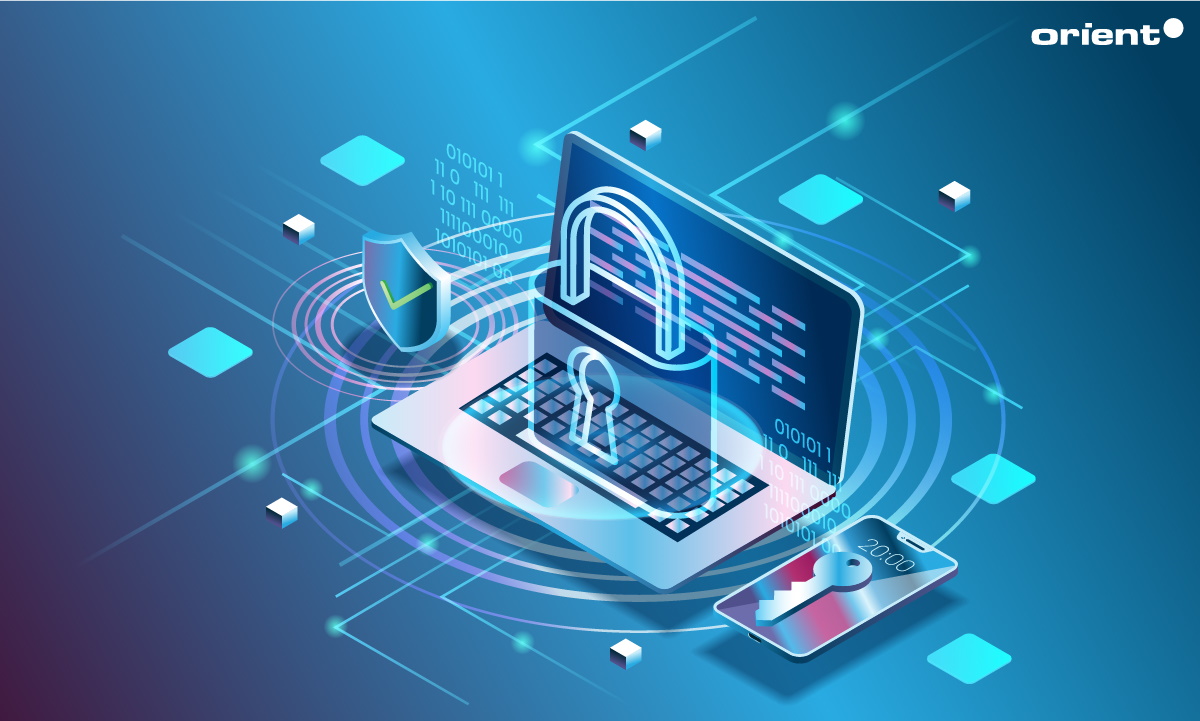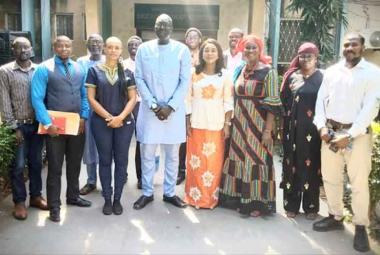By Muhammed Nasiru Tunkara
As The Gambia increasingly embraces digital transformation, cybersecurity has become a critical concern for individuals, businesses, and the government. The rapid integration of technology in various sectors has exposed vulnerabilities that, if not properly managed, could lead to significant data breaches and cyber-attacks. Protecting data in this digital age requires a comprehensive approach, especially as social media usage soars among teenagers, making them particularly vulnerable to cyber threats.
The Digital Transformation in The Gambia
The Gambia's digital landscape is evolving rapidly. From e-commerce platforms and online banking to government services and educational portals, the nation is making strides towards becoming a digitally inclusive society. According to a report by the Ministry of Information and Communication Infrastructure (MOICI), internet penetration in The Gambia has grown significantly, with over 25% of the population now having access to the internet. This growth, while positive, also brings to the forefront the urgent need for robust cybersecurity measures.
The Importance of Cybersecurity
Cybersecurity involves protecting internet-connected systems, including hardware, software, and data, from cyber-attacks. For The Gambia, this is not just a technical issue but a critical aspect of national security and economic stability. Cyber threats can disrupt services, cause financial losses, and lead to the theft of sensitive information.
In the context of businesses, especially tech startups like Wave, Insist Global, and Assutech, cybersecurity is paramount. These companies handle vast amounts of data and rely heavily on digital infrastructure. A single breach could not only undermine customer trust but also jeopardize the entire operation. For example, Insist Global’s enterprise software solutions require stringent security protocols to ensure client data is protected from unauthorized access .
The Role of Social Media and Teenagers
One of the most concerning aspects of cybersecurity in The Gambia is the role of social media, particularly among teenagers. With the rise of platforms like Facebook, Instagram, and TikTok, young people are spending more time online than ever before. This increased digital presence exposes them to various cyber threats, including phishing scams, cyberbullying, and exposure to inappropriate content.
A study conducted by the Gambia Cybersecurity Alliance (GCA) found that over 70% of teenagers in The Gambia are active on social media, with many of them unaware of the potential risks . The same study highlighted that a significant number of these teenagers had experienced some form of cyber harassment or had their personal data compromised.
Strategies for Enhancing Cybersecurity
To address these challenges, The Gambia must adopt a diverse
approach to cybersecurity. Here are some key strategies:
- Education and Awareness: Raising awareness about cybersecurity among the general population, especially teenagers, is crucial. Educational programs should be implemented in schools to teach students about safe online practices and the importance of protecting their personal information.
- Government Policies and Regulations: The government should enforce stringent cybersecurity regulations and standards. This includes implementing data protection laws and ensuring that organizations comply with these regulations to safeguard user data.
- Investment in Technology: Investing in advanced cybersecurity technologies can help detect and prevent cyber threats. Businesses and government institutions should prioritize cybersecurity in their IT budgets to protect their digital assets effectively.
- Public-Private Partnerships: Collaboration between the government, private sector, and international partners is essential. Public-private partnerships can help pool resources, share knowledge, and develop comprehensive cybersecurity frameworks.
- Parental Involvement: Parents must be proactive in monitoring their children’s online activities. Encouraging open communication about internet safety and setting guidelines for social media usage can help protect teenagers from cyber threats.
Conclusion
As The Gambia continues to advance digitally, cybersecurity must be at the forefront of national and individual priorities. Protecting data in this digital age requires concerted efforts from all stakeholders—government, businesses, educators, and parents. By implementing robust cybersecurity measures and raising awareness, The Gambia can ensure a safer digital environment for everyone, particularly its young and vulnerable population.
References
- Ministry of Information and Communication Infrastructure (MOICI). (2022). The State of Internet Penetration in The Gambia. Retrieved from link.
- Insist Global. (2023). Enterprise Software Solutions and Cybersecurity. Retrieved from Link.
Gambia Cybersecurity Alliance (GCA). (2023). Social Media Usage and Cybersecurity Among Teenagers in The Gambia. Retrieved from Link







